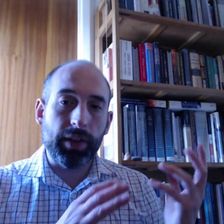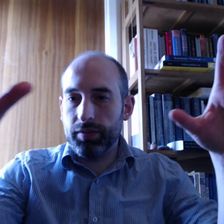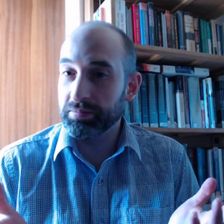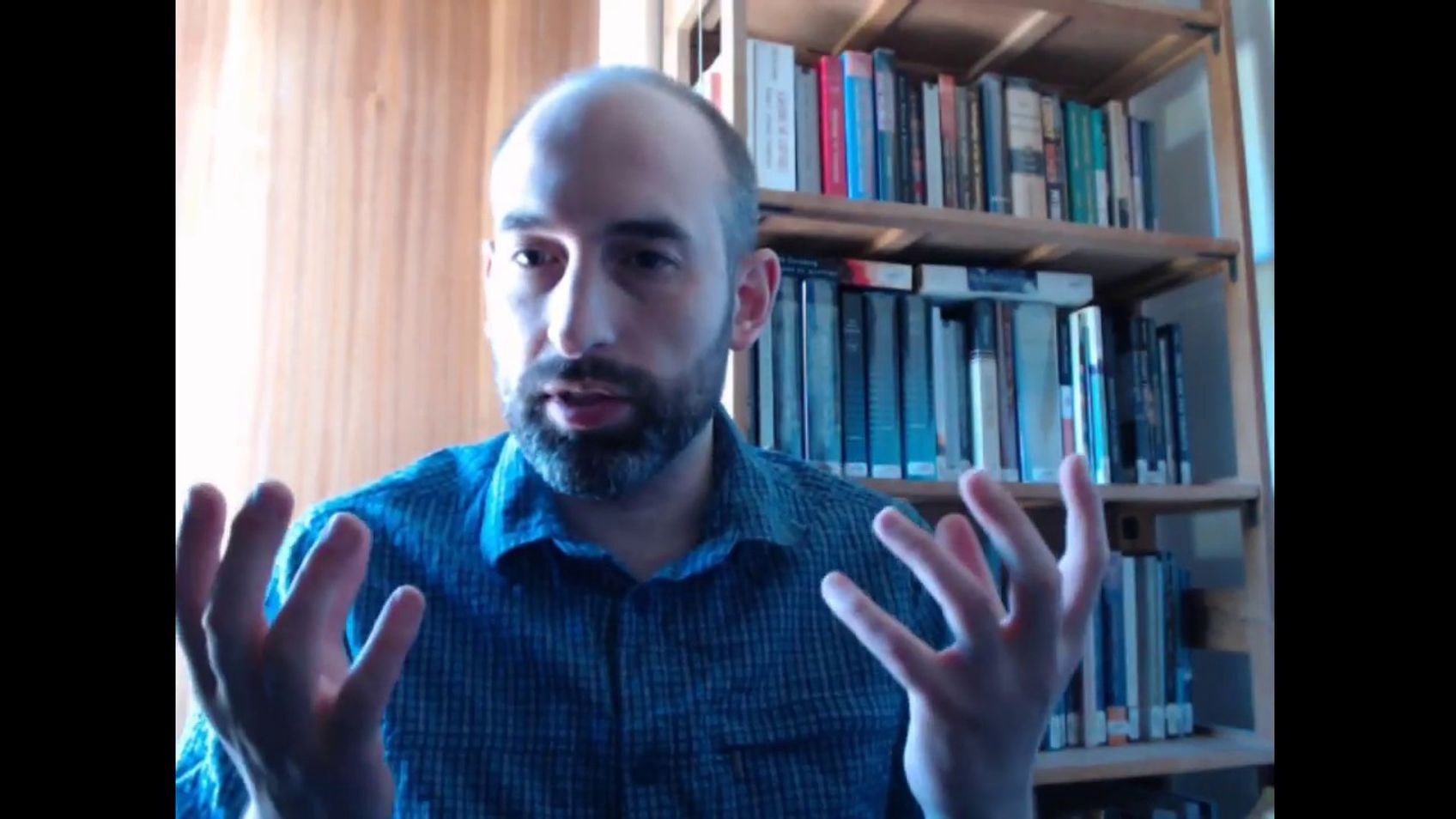Q&A#1 Jesus and Jacob at Peniel
May 14, 2018

Alastair Roberts
Today's Question: Can you think of any ways in which Jacob's struggle with the angel prefigures Christ's death?
Leave your own questions in the comments, on my blog, or on my Curious Cat account.
More From Alastair Roberts

Q&A#2 Why is it the Man rather than the Woman who Leaves Father and Mother in Genesis 2:24?
Alastair Roberts
May 15, 2018
Today's Question: Why is it the man rather than the woman who leaves father and mother in Genesis 2:24?
Leave your own questions in the comments, on

Q&A#3 A Biblical Theology of the Household
Alastair Roberts
May 16, 2018
Today's Question: Is there a biblical theology of the household you could outline for us in a YouTube video?
Leave your own questions in the comments

Q&A#4 The Threefold Personhood of God
Alastair Roberts
May 17, 2018
Today's Question: You've challenged the idea that the Persons of the Trinity are three distinct 'centers of consciousness'. But, reading the gospels,

Ask Me Your Questions!
Alastair Roberts
May 13, 2018
If you have any burning biblical or theological questions that you would like for me to answer, leave them in the comments here, or on one of the foll

Is Peter the Rock on which Christ's Church is Built?
Alastair Roberts
May 12, 2018
Joseph Minich recently wrote a thought-provoking article about Jesus's statement to Peter concerning the rock on which he would build his Church: http

Priest, King, and Prophet
Alastair Roberts
May 1, 2018
A short introduction to the priest, king, prophet pattern in Scripture.
More on OpenTheo

Can You Provide Verifiable, Non-Religious Evidence That a Supernatural Jesus Existed?
#STRask
November 10, 2025
Question about providing verifiable, non-religious evidence that a supernatural Jesus existed.
* I am an atheist and militantly anti-god-belief. Ho

Does God Really Need a “Pound of Flesh” to Forgive Sins?
#STRask
January 12, 2026
Questions about how to answer the challenge that God doesn’t need a “pound of flesh” to forgive sins but can simply forgive, and whether the claim in

How Could One Person Trust Another Person on the Topic of God?
#STRask
March 5, 2026
Questions about how one person could trust another person on the topic of God, how STR obtained information about God that others haven’t obtained, an

Does Open-Mindedness Require Studying Other Religions Before Becoming a Christian?
#STRask
February 9, 2026
Questions about the claim that if Christians really want to be open-minded, they need to read and study other religions before committing to Christian

The Making of the American Mind with Matthew Spalding
Life and Books and Everything
February 2, 2026
The United States is unique in how much attention it pays to its founding, its founders, and its founding documents. Arguably, the most famous and mos

Why Do We Say Someone Was Saved on a Particular Date If It Was Part of an Eternal Plan?
#STRask
November 24, 2025
Questions about why we say someone was saved on a particular date if it was part of an eternal plan, the Roman Catholic view of the gospel vs. the Bib

Is 1 Corinthians 12:3 a Black-and-White Tool for Discernment?
#STRask
October 27, 2025
Questions about whether the claim in 1 Corinthians that “no one can say ‘Jesus is Lord’ except in the Holy Spirit” is a black-and-white tool for disce

Can You Recommend Good Books with More In-Depth Information and Ideas?
#STRask
January 22, 2026
Questions about good books on Christian apologetics, philosophy, and theology with more in-depth information and ideas, and resources to help an intel

Keri Ingraham: School Choice and Education Reform
Knight & Rose Show
January 24, 2026
Wintery Knight and guest host Bonnie welcome Dr. Keri Ingraham to discuss school choice and education reform. They discuss the public school monopoly'

How Do We Advocate for Christian Policy Without Making the Government Interfere in Every Area of Life?
#STRask
November 20, 2025
Questions about how to advocate for Christian policy without making the government interfere in every area of life, and the differences between the mo

E. Calvin Beisner: Climate and Energy Policy
Knight & Rose Show
January 4, 2026
Wintery Knight and Desert Rose welcome Dr. E. Calvin Beisner to discuss climate and energy policy. They explore Biblical dominion and stewardship, con

Shouldn’t I Be Praying for My Soul Rather Than for Material Things?
#STRask
February 2, 2026
Questions about whether we should be praying for our souls rather than for material things, why we need to pray about decisions, whether the devil can

Are You Accursed If You Tithe?
#STRask
December 15, 2025
Questions about whether anyone who tithes is not a Christian and is accursed since Paul says that if you obey one part of the Mosaic Law you’re obliga

Why Is It Necessary to Believe Jesus Is God?
#STRask
February 19, 2026
Questions about why it’s necessary to believe Jesus is God, whether belief in the Trinity is required for salvation, and why one has to believe in the

When I Can’t Stop Thinking About Something, Is That God Speaking?
#STRask
December 1, 2025
Questions about whether having a recurring thought is an indication God is speaking to you, what to say to someone who says they sinned because “God t
